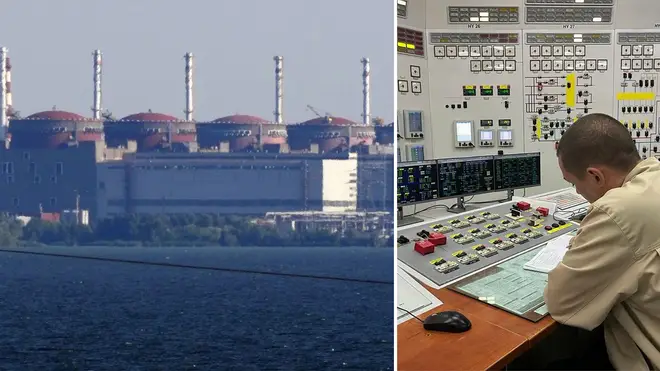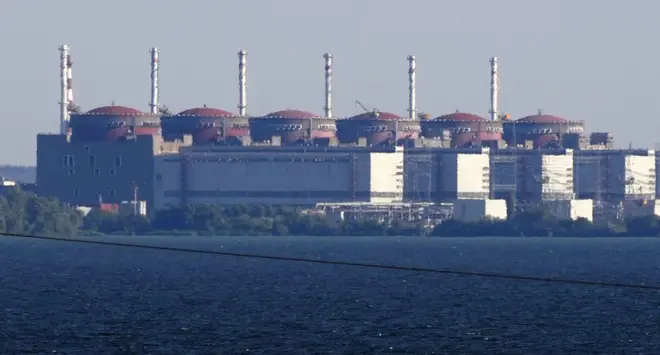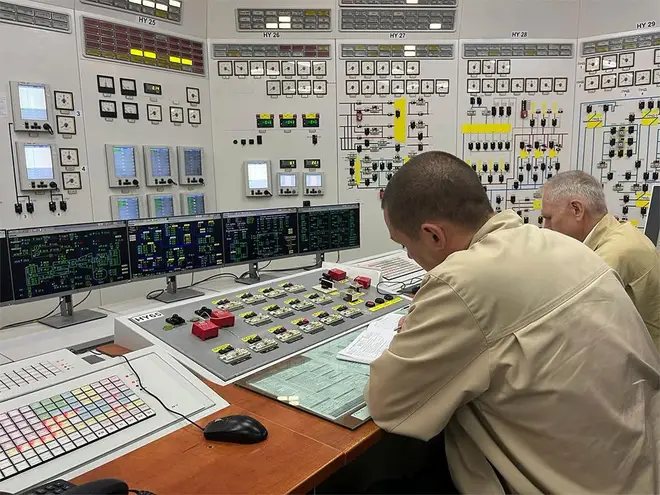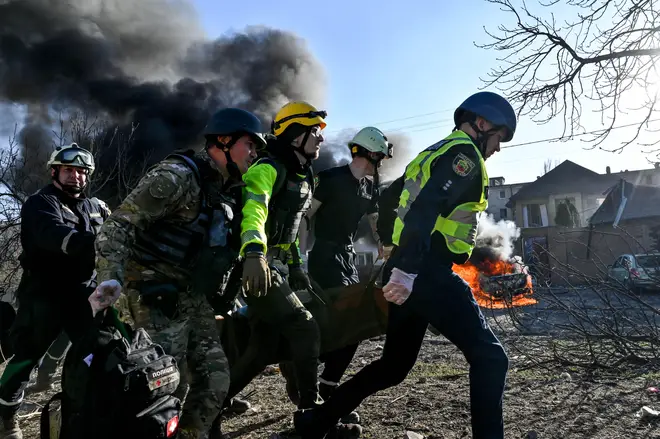
Clive Bull 1am - 4am
8 April 2024, 09:03 | Updated: 8 April 2024, 09:13

A drone attack has hit a nuclear reactor at the Russian-held Zaporizhzhia power plant in Ukraine, raising the risk of a 'major accident', says the UN's atomic watchdog.
This is the first attack of its kind since November 2022, according to Rafael Mariano Grossi, director general of the UN’s International Atomic Energy Agency (IAEA).
One of the six reactors was hit, and has resulted in three people being injured.
Russia has placed the blame on Ukraine, but the country has denied being involved.

"Ukraine was not involved in any armed provocations on the site," Ukrainian Main Intelligence Directorate spokesman Andriy Yusov told the Ukrainska Pravda news website.
He added that Russia is "illegally" occupying the plant.
Read more: 'Stop holding up aid to Ukraine', David Cameron to warn US politicians on Washington DC trip
Read more: Britain should consider Swedish-style military conscription, former MI6 chief says
Mr Yusov accused Russia of endangering not only the nuclear facility but also the civilian population and the environment by carrying out strikes on the plant itself.
The IAEA has urged both Moscow and Kyiv to show restraint and has repeatedly warned against such attacks.
Mr Grossi, has deemed the drone strike as "reckless" and "a major escalation of the nuclear safety and security dangers" facing the plant.
The Zaporizhzhia plant is located in southern Ukraine and was seized by Russian forces shortly after its February 2022 full-scale invasion.
It is Europe's largest, and is on the frontline of the Russia-Ukraine conflict.
The facility halted generating power in 2022 but it still requires a constant supply of electricity to cool one of its six reactors - it is in a state of "hot conservation", which means it is not fully online.

A team of IAEA experts at Zaporizhzhia have confirmed the "physical impact of drone attacks" at the plant, including one of its reactors.
Russian-installed administrations have reported normal radiation levels and no serious damage.
The IAEA has reported the damage has not compromised nuclear safety but has warned Sunday's drone attack "is a serious incident" with a potential to undermine "the integrity of the reactor’s containment system".
The plant has suffered "at least three direct hits" against the its "main reactor containment structures", according to Mr Grossi.
"This cannot happen," he added. "No one can conceivably benefit or get any military or political advantage from attacks against nuclear facilities. This is a no-go."
In February, the IAEA said its team of experts at the plant had heard explosions every day for a week.
At the time, Mr Grossi said: "For more than two years now, nuclear safety and security in Ukraine has been in constant jeopardy.
"We remain determined to do everything we can to help minimise the risk of a nuclear accident that could harm people and the environment, not only in Ukraine."
The drone strike comes after Russia fired five missiles on Zaporizhzhia on Friday, which killed at least four people and injured 20 others.

Residential buildings and industrial facilities were damaged, the regional governor said.
Meanwhile, Foreign Secretary Lord Cameron will visit Washington later for face-to-face talks on Ukraine.
He will urge senior Republicans to approve further military aid for Kyiv - warning they're putting international security at risk.
President Biden's planned aid package - worth £75 billion - has been stalled for months
The UK has set aside £2.5 billion for aid to Ukraine to support it in its war against the Russian invaders, while the EU has agreed about £43 billion.

Is America's support for Ukraine's war on the decline?
Lord Cameron wrote in a joint article with his French counterpart Stephane Sejourne that Ukraine's other allies must step up with support.